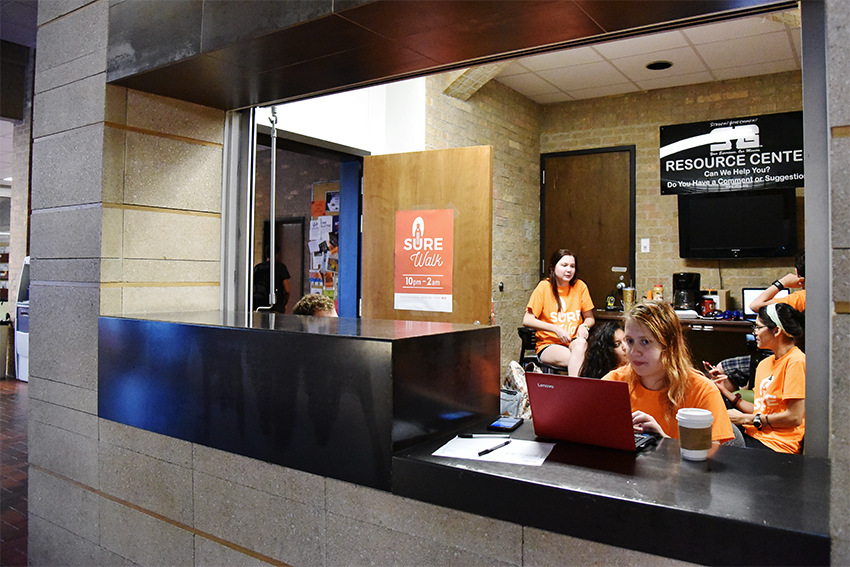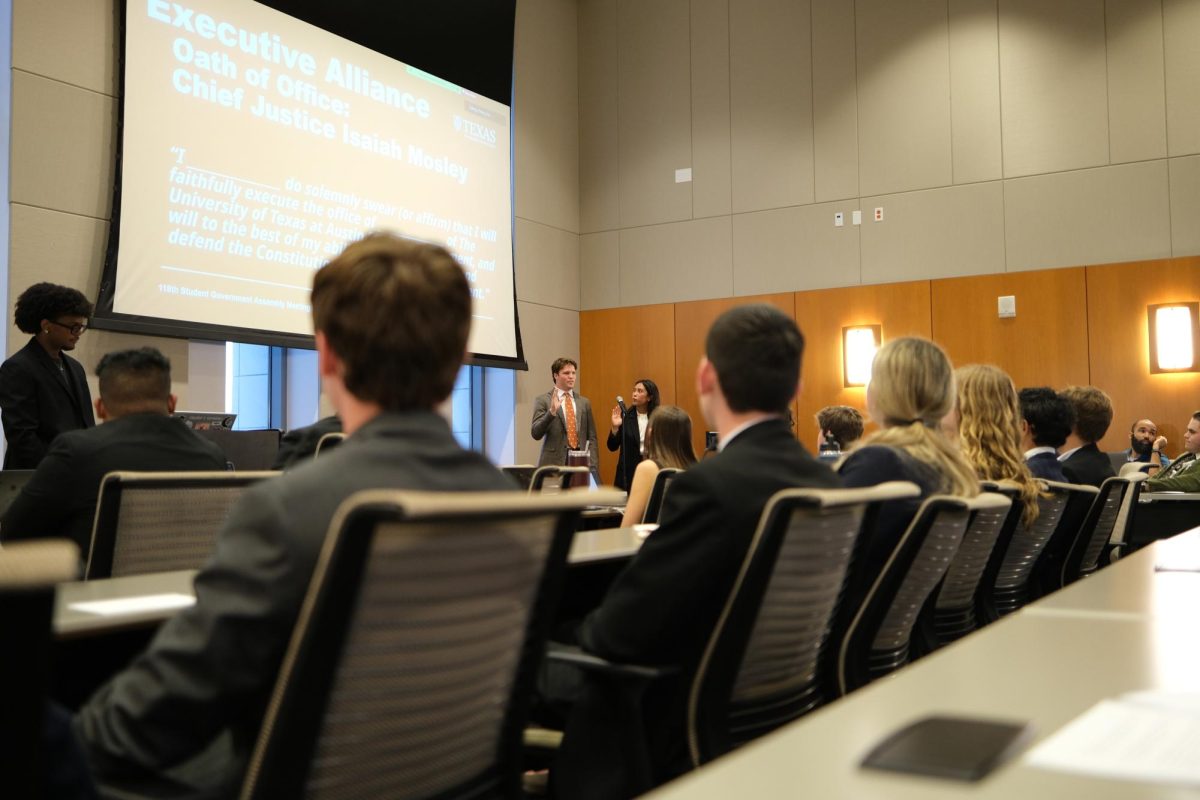Student Government, in collaboration with the University, plans to launch the second phase of the Be Safe campaign in mid-October.
The campaign will encourage students, staff and faculty to be safer when traveling to, from and while on campus, said Cindy Posey, associate director for Communications for University Operations and public information officer.
Safety has become a primary concern for student representatives and campus officials since the murder of Haruka Weiser in April.
“We started the Be Safe campaign about a year ago when we were hearing more and more stories west of campus and on campus involving the criminally transient population,” Posey said. “So we were trying to educate the campus on what they could do, and then in April, when the homicide happened on campus it made it obviously much more urgent.”
Posey said the campaign will feature three tips — Walk With Me, Be Aware and Call 911 — each being a different, smaller campaign within within Be Safe. Working with the Weiser family, Student Government has spearheaded the Walk With Me portion of Be Safe.
“[The Weiser family’s] belief is that the only way Haruka would still be with us today is if she had been walking with someone else, and I totally agree,” Student Government President Kevin Helgren said. “The Walk With Me program is really to incentivize Longhorns to take care of each other.”
Be Aware attempts to tell students and faculty to be more aware when walking, and Call 911’s purpose is to make sure students dial 911 any time something occurs that makes them feel unsafe, even if they aren’t in immediate danger, Posey said.
While working with the Be Safe campaign, the expansion of Students United for Rape Elimination, or SURE Walk, has also been a priority in the new year for Student Government. SURE Walk, a program run by Student Government, offers to walk students to their destination around campus late at night, and began in the 1980s, restarting in 2011.
“We’ve partnered with Parking and Transportation Services, and by doing that we have enhanced the legitimacy of the program,” Helgren said. “Volunteers now have T-shirts, they have flashlights and they have walkie-talkies. So now, whenever you request a SURE Walk there is not an ounce of doubt in your mind that that person is exactly who they say
they are.”
Previously, SURE Walk only operated Thursday, Friday and Saturday nights, but has now expanded to seven days a week in addition to opening a headquarters in Jester across from Jester Java. The program also received a $20,000 donation from former Student Government President Paul Begala shortly after Weiser’s murder. The donation was used to purchase one golf cart, and there are plans to buy a second using the money. Golf carts are not considered street-ready, which restricts SURE Walk from using them off campus.
“My promise is that if we can find a way to circumnavigate the issue with golf carts not being street-ready, if and when we can figure out that issue, we will purchase golf carts and SURE Walk will be operating with golf carts before my time as student body president is over,” Helgren said.
Bob Harkins, associate vice president for Campus Safety and Security, said that the UTPD has also been working to make campus safer since the homicide by increasing lighting on campus, expanding police patrols, clearing vegetation and ensuring that UT buildings can only be accessed by students and faculty after hours.
“As a freshman female I still don’t feel comfortable walking by myself at night,” said Naseem Shafaei, a communication sciences and disorders freshman. “We still need more police patrolling around campus, but it makes me feel a little safer knowing they’re doing something about it.”
This story originally stated the Be Safe campaign would be unveiled in mid-October. It has been corrected to say the second phase of the campaign would be launched in mid-October.














